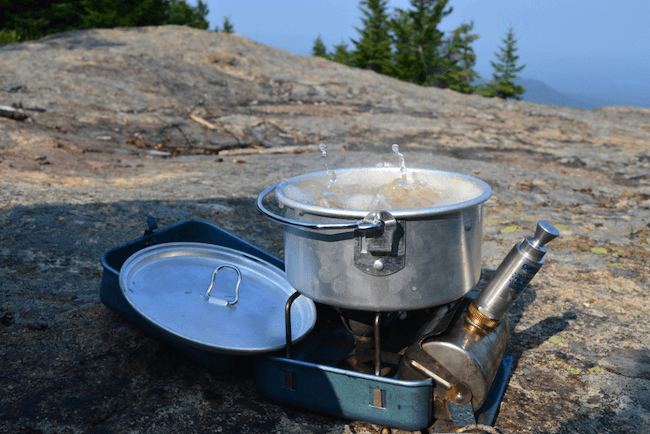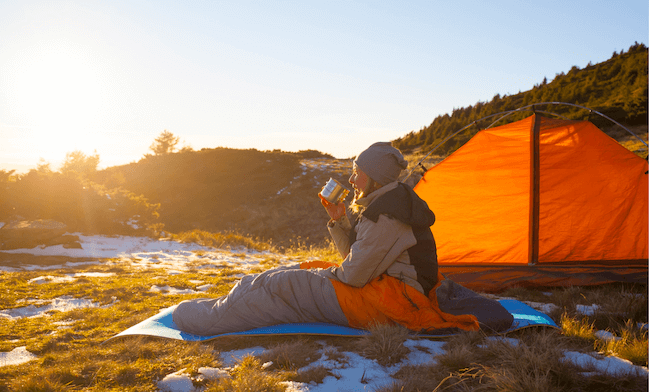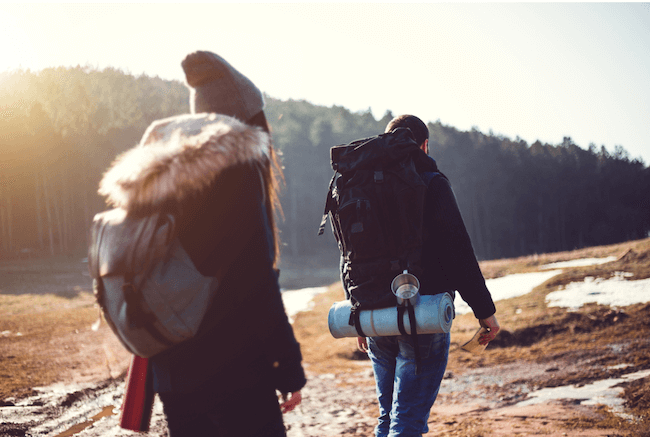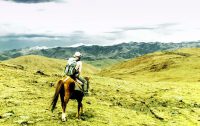There’s a first time for everything – and even the most experienced adventurers have made mistakes. When you’re preparing for your first proper camping trip things can seem a bit daunting. You’re probably wondering what’s a sensible amount to take, what happens if you forget anything, and if there’s essential equipment you need to buy. This is especially the case as so many serious campers have tons of gear. Lots of people think that they need to invest in absolutely everything in order to have a successful camp. However, this needn’t be the case – you just need to keep a few key things in mind. Here, we run down the top seven rookie errors to avoid, making camping for beginners simple and stress-free.
1. Research, research, research!
Sure, spontaneity is great – but the key to a successful camp is doing your research. However, this isn’t to say you need to get bogged down in information – after all, camping is meant to be fun and relaxed. That said, it is exactly for this reason that it is important to prepare. Make sure you read up on weather conditions and facilities. For instance, does the campsite have running water or toilet facilities? How cold is it going to be at night? Often, this information is right at your fingertips. Do some quick Google searches or make a phone call or two just to make sure you can get off to a smooth start.
2. Not trying out your gear

This is an essential camping for beginners tip: make sure you try out your gear before you leave. Pitch your tent in your yard, test your torch, figure out how to use your stove, and break in your boots. Trust us – there is nothing worse than arriving at a campsite and discovering that something doesn’t work. Remember, it’s fine to be a beginner, but pouring over an instruction manual is neither a fun nor exciting way to start your trip.
3. Skimping on quality
If you’re new to camping, the temptation will be to save on equipment. However – and this next tip is connected to trying out your gear – skimping on quality can often lead to disaster. The last thing you need while you’re trying to relax is your stove falling apart or your tent breaking. We’re not saying you need to break the bank on pro equipment. After all, you might find out that camping isn’t really for you. But if you’re keen to try it out, make smart moves like checking out sales and going with trusted brands.
4. Getting cold

This might seem like an obvious point, but don’t underestimate how much the temperature can drop at night. Make sure that you bring a sufficiently cosy sleeping bag and a couple of warm jumpers. However, for summer camping, layering is key. Often, you’ll be freezing at night and want to strip off in the morning – so make sure you have a variety of clothing.
5. Arriving late
This is a classic error when it comes to camping for beginners – arriving at your campsite too late. Take it from us – putting up a tent in the dark is a nightmare. What’s more, there is a possibility that you might not be able to find a stop, which is stressful. However, at peak times of your it’s also possible that the campsite will fill up before night falls – so give the site a quick call and get their advice on the best arrival time.
6. Lighting is key
You probably have a romantic image in your head of cooking on the stove by the light of a full moon and the glow of a campfire. However, more often than not, this isn’t going to cut it. Even with a head torch, preparing a meal in the dark is pretty challenging – or even worse if you’re attempting to chop veggies with a torch shoved in your mouth. Make sure you over-pack on the lighting front – you’ll be grateful when night falls.
7. Our key camping for beginners tip – leave no trace

This is perhaps our most important camping for beginners tip – when you’re trip is over, make sure you leave no trace. This means clearing all your food, garbage, and equipment to make sure that you leave the site exactly as you found it. Moreover, unsecured food and garbage will attract animals. If a fox, or worse, a bear gets into your trash or food, not only will they cause a terrible mess, they can be harmed by plastics or tins. Therefore, it is essential to make sure you care for nature by securing and clearly your food and trash.
No comments yet
There are no comments on this post yet.






Leave a comment